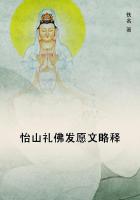if the Stettin council wished to forbid export they must do so before Shrove Tuesday; the Duke retained the right both of suspending the prohibition altogether and of allowing exceptions.(18*) In the archbishopric of Magdeburg we find, in the time of the Elector Albert, that sometimes the town requested the government, and sometimes the government requested the town, to forbid export, and that there was an attempt to arrive at joint action by joint deliberation; yet, as early as 1538, the archiepiscopal governor (Statthalter) after a bad harvest imposed a duty of a quarter of a gulden per wispel on the export of corn to last until next Midsummer's Day, so as to keep a sufficient supply in the country and yet "not altogether prevent the peasant from making a livelihood." Under the succeeding Brandenburg "administrators" of the archbishopric, the right of the government to prohibit export in times of scarcity was as undoubted as in most of tHeir other territories.(19*)In Brandenburg the following rules were established during the course of tHe sixteenth century. In winter, from Martinmas (Nov. 11) to the Feast of the Purification (Feb. 2) no exportation should take place; Scheplitz connects this with the cessation of navigation during the winter, the universal custom in earlier times. Moreover, the peasants were never to export;only the squires (knights), the prelates, and the towns. In time of dearth the Elector had the right of embargo; but exceptions were allowed, as, for instance, to the towns of Seehausen, Werben, and Osterberg in the Old Mark (1536), both on account of their position on the frontier as well as because they had paid a considerable sum for the privilege; the Margrave John granted to the Frankfurters, in 1549, a similar privilege with regard to his appanage, the New Mark. The through transport of corn not produced in the Mark was allowed at any time upon the production of certificates of origin; and the Frankfurters were permitted at any time to export barley in the form of malt, even if it came from the country itself.(20*)While thus corn-exporting territories, like Pomerania, Magdeburg and Brandenburg, had constant recourse to prohibitions of export, though they were temporary only, these prohibitions rested on the idea of the territorial harmonising of production and consumption; and, when the needs were different, recourse was had without hesitation to an even more stringent and, in the last resort, permanent prohibition; as Pohlmann has described in the case of Florence,(21*) and Miaskowski for the Swiss cantons.(22*)The Netherlands prohibited the export not only of native horses, weapons, and war-material, but also of native corn, gold, silver, quicksilver, copper, and brass. In Brandenburg, also, hops were much more often compulsorily kept back than corn. Everywhere the prohibition of the export of leather and cattle played a great part. It was always the same conception that was involved: the resources of the land were thought of as a whole, which ought, first of all, to serve the needs of the country; they ought not to enrich a few individuals, but serve the home producer and the home consumer at a fair price. The regulations hitherto employed for this end by the towns were now transferred to the territories. As hitherto the town had laid an embargo, so now the territory: as the town had, at times, prohibited the import of foreign beer and wine and manufactured articles, so now the territory: as the town had hitherto maintained an elaborate system of differential tolls, so now the districts and territories set out upon a similar course. Berne threatened its Oberland (or subject territory) with an embargo on corn and salt, if it did not bring all its butter to Berne. As Nuremberg forced to its own market all the cattle that came within a circuit of ten miles;(23*) as Ulm did not allow a single head of cattle fed on the common pasture to leave its territory;(24*) so Florence secured for itself all the cattle sold from the subject districts without permitting their return, and exacted sureties from the owners of the great flocks driven to the Maremme that they would bring them back within the state boundaries a third larger. In the duchy of Milan, an official permission was necessary even for the transport of grain from place to place, so that the country might remain sure of its food.
同类推荐
热门推荐
豪门世家:我的霸道老公
“把孩子拿掉!”他狠狠地对她说道!一桩商业联姻,她迈入豪门做了总裁夫人,本以为生活不会有任何改变。却没想到,夜夜躺在身边的男人,对她恨之入骨。他是年轻帅气的CEO,也是家族企业的接班人。他的冷漠,他的无情,就像一把利刃狠狠地刺进她的心里。被他强迫带去医院,将她亲自拖到手术台,亲手扼杀了她和孩子,让她万箭穿心,生不如死。所以,她恨!势必要让他付出惨痛的代价!五年后,她涅槃归来,已是红遍亚洲的国际女星,两人擦肩而过,她留给他的,只是一抹淡淡的嘲讽!“金俊熙,好久不见!”"倾城召唤师:草包小姐逆袭
21世纪杀手女王,世上最大帮帮派“血狱”帮主,因为偷懒旅游,在某处某山某棵树一不小心撞挂了??说出去谁信啊?我就不信了……但事实是残酷的,咱堂堂一代代杀手女王,真的升天了!?升天后是天使吗?NONONO!是狗血的穿越到了一个玄幻的架空历史!?说巧不巧,还穿到了一个废物身上,狗血,真TM够狗血!不过嘛~嘻~既来之则安之嘛,反正,有爹疼,有娘爱,有哥护,还有外公替她撑exo之复仇女王重现
呵,欧阳冉月,你把我父母逼上绝路,把我心爱的人抢走,现在我回来了,我已经是全球第一公司(毓雪)的boss:安兮寒,当然,我还有其他身份没有揭开exo,当初你们只有2个人相信我,那么,你们不仁就被怪我不义这里璃夏,写得不好别怪我















